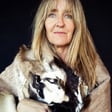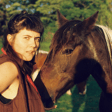
Know this about people pleasing, olive pressing and apocalypse skills
It's the RESKILLIENCE ROADTRIP where I'm intercepting all sorts of good sorts along Australia's east coast!
First up is Ceilidh Meo who teaches no less than 80 apocalypse skills (!!!) while also growing olives, shoring up the food system and being casually shamanic.
This is a ROMP of a convo that is INSPIRING ME TO USE CAPS. Such fun. Such depth.
I also share about the caravan park we've just checked into.
🔥 WITHIN
GEEK OUT ON MICRO NICHE OLIVE PRESSING
An antidote to the olive oil crisis
Cooperation is not the same as collaboration!
POMMUS
The gross truth about imported olive oil
THE FIVE C FRAMEWORK
When knowledge ain't power
Systems design thinking for avoiding monumental fuck ups
WHY 40s ARE THE BEST DECADE
Yay for confirmation bias!
Loyal soliders of the psyche
Birth story REWRITE
Learning types
Manifestation vs. MAGIC
Where does the need to know everything come from?
Do more of what you’re already good at, or challenge your comfort zone?
Not here to consume, but to create!
🧙♀️ LINKY POOS
Connect with Ceilidh ~ CIVILITAS
Ceilidh's olive oil ~ Apulia Grove
Art exhibition + workshops ~ Ancient Roots in the New World
Mel Robbins ~ The Let Them Theory



















